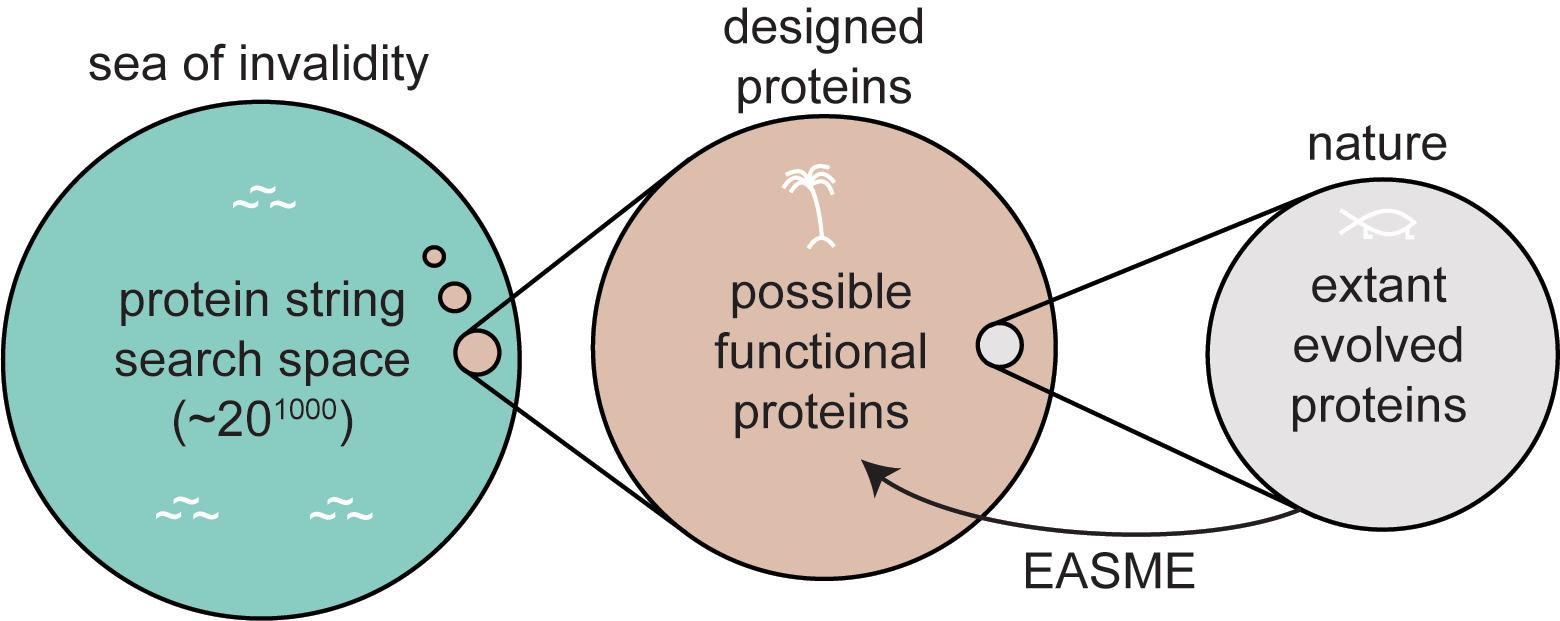Computational Life: How Well-formed, Self-replicating Programs Emerge from Simple Interaction
2406.19108

132
0
🔗
Abstract
The fields of Origin of Life and Artificial Life both question what life is and how it emerges from a distinct set of pre-life dynamics. One common feature of most substrates where life emerges is a marked shift in dynamics when self-replication appears. While there are some hypotheses regarding how self-replicators arose in nature, we know very little about the general dynamics, computational principles, and necessary conditions for self-replicators to emerge. This is especially true on computational substrates where interactions involve logical, mathematical, or programming rules. In this paper we take a step towards understanding how self-replicators arise by studying several computational substrates based on various simple programming languages and machine instruction sets. We show that when random, non self-replicating programs are placed in an environment lacking any explicit fitness landscape, self-replicators tend to arise. We demonstrate how this occurs due to random interactions and self-modification, and can happen with and without background random mutations. We also show how increasingly complex dynamics continue to emerge following the rise of self-replicators. Finally, we show a counterexample of a minimalistic programming language where self-replicators are possible, but so far have not been observed to arise.
Create account to get full access
This summary was produced with help from an AI and may contain inaccuracies - check out the links to read the original source documents!
Related Papers

The Origin of Information Handling
Amahury Jafet L'opez-D'iaz, Hiroki Sayama, Carlos Gershenson

0
0
A major challenge when describing the origin of life is to explain how instructional information control systems emerge naturally and spontaneously from mere molecular dynamics. So far, no one has clarified how information control emerged ab initio and how primitive control mechanisms in life might have evolved, becoming increasingly refined. Based on recent experimental results showing that chemical computation does not require the presence of life-related chemistry, we elucidate the origin and early evolution of information handling by chemical automata, from information processing (computation) to information storage (memory) and information transmission (communication) and later digital messengers, covering at the same time its syntactic, semantic and pragmatic flavors. In contrast to other theories that assume the existence of initial complex structures, our representation starts from trivial self-replicators whose interaction leads to the arising of more powerful molecular machines. By describing precisely the primordial transitions in chemistry-based computation, our framework is capable of explaining the above-mentioned gaps and can be translated to other models of computation, which allow us to explore biological phenomena at multiple spatial and temporal scales. Being compatible with the free energy principle, we have developed a computational enactivist theoretical framework that could be able to describe from the origin of life to higher-level cognition, as if it were a purely constructivist narrative. At the end of our manuscript, we propose some ways to extend our ideas, including experimental validation of our theory (both in vitro and in silico).
6/5/2024

Self-Reproduction and Evolution in Cellular Automata: 25 Years after Evoloops
Hiroki Sayama, Chrystopher L. Nehaniv

0
0
The year of 2024 marks the 25th anniversary of the publication of evoloops, an evolutionary variant of Chris Langton's self-reproducing loops which proved constructively that Darwinian evolution of self-reproducing organisms by variation and natural selection is possible within deterministic cellular automata. Over the last few decades, this line of Artificial Life research has since undergone several important developments. Although it experienced a relative dormancy of activities for a while, the recent rise of interest in open-ended evolution and the success of continuous cellular automata models have brought researchers' attention back to how to make spatio-temporal patterns self-reproduce and evolve within spatially distributed computational media. This article provides a review of the relevant literature on this topic over the past 25 years and highlights the major accomplishments made so far, the challenges being faced, and promising future research directions.
6/11/2024

Evolutionary Algorithms Simulating Molecular Evolution: A New Field Proposal
James S. L. Browning Jr., Daniel R. Tauritz, John Beckmann

0
0
The genetic blueprint for the essential functions of life is encoded in DNA, which is translated into proteins -- the engines driving most of our metabolic processes. Recent advancements in genome sequencing have unveiled a vast diversity of protein families, but compared to the massive search space of all possible amino acid sequences, the set of known functional families is minimal. One could say nature has a limited protein vocabulary. The major question for computational biologists, therefore, is whether this vocabulary can be expanded to include useful proteins that went extinct long ago, or maybe never evolved in the first place. We outline a computational approach to solving this problem. By merging evolutionary algorithms, machine learning (ML), and bioinformatics, we can facilitate the development of completely novel proteins which have never existed before. We envision this work forming a new sub-field of computational evolution we dub evolutionary algorithms simulating molecular evolution (EASME).
6/12/2024

Emergent Dynamics in Heterogeneous Life-Like Cellular Automata
Aarati Shrestha, Felix Reimers, Sanyam Jain, Paolo Baldini, Michele Braccini, Andrea Roli, Stefano Nichele

0
0
The Game of Life (GoL), one well known 2D cellular automaton, does not typically ensure interesting long-term phenotypic dynamics. Therefore, while being Turing complete, GoL cannot be said to be open-ended. In this work, we extend GoL with the opportunity for local mutations, thus enabling a heterogeneous life-like cellular automaton guided by an evolutionary inner loop. Additionally, we introduce the concept of cell ageing to ensure that cell aliveness (activated by inheritance with variation, and controlled by ageing) and actual cell computation (governed by life-like rules on local neighborhoods) are kept conceptually separated. We conduct an experimental campaign to identify suitable parameters that produce long-term phenotypic dynamics and favor genotypic innovations.
6/21/2024